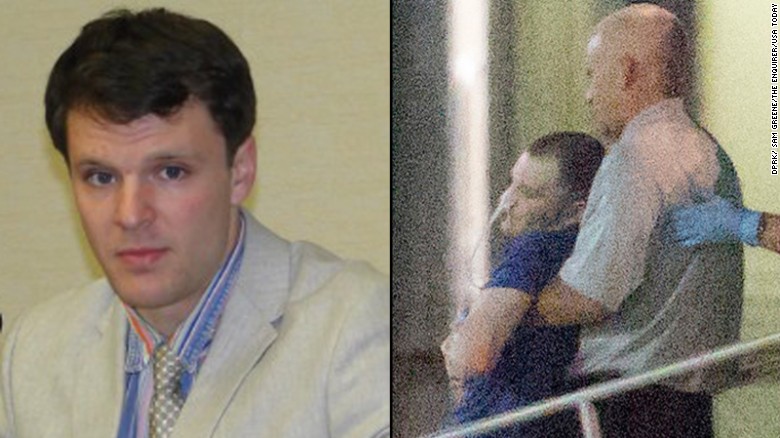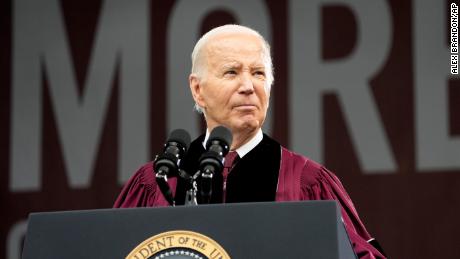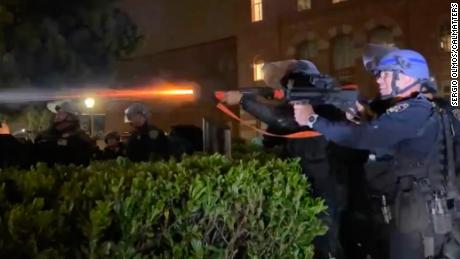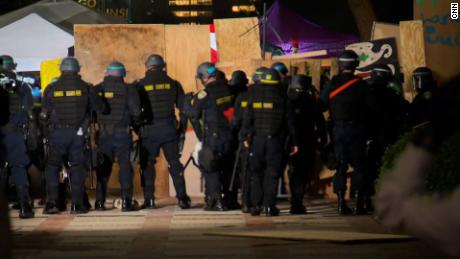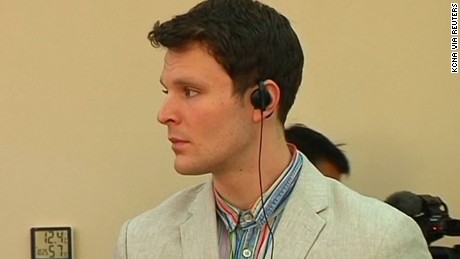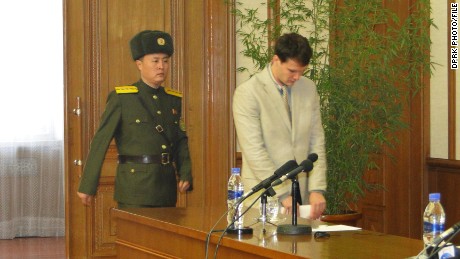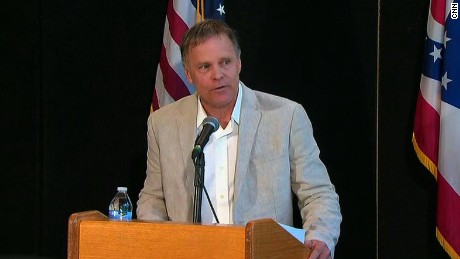Story highlights
- Otto Warmbier died on Monday after 17 months detention in North Korea
- Doctors said he suffered significant tissue loss in his brain
(CNN)After 17 months of detention in North Korea, the conditions of which are still unclear, Otto Warmbier returned to his home state of Ohio last week.
On Monday, his family announced his death.
"It would be easy at a moment like this to focus on all that we lost -- future time that won't be spent with a warm, engaging, brilliant young man whose curiosity and enthusiasm for life knew no bounds. But we choose to focus on the time we were given to be with this remarkable person," his family said in a statement.
The young man who landed in Cincinnati wasn't the same person who left a year and a half ago on a trip to explore the secretive country.
Before his death, Warmbier did not talk, move in any purposeful way or respond to verbal communication. In a news conference, doctors called his condition "unresponsive wakefulness," and revealed he had suffered significant brain damage during his imprisonment.
The North Korean government said botulism is to blame for Warmbier's condition, but doctors said they didn't find any evidence of the illness in the now 22-year-old.
Before his detention made global headlines, Otto Warmbier was just an adventurous college student.
Bright future
Otto was born to Cindy and Fred Warmbier in Cincinnati -- the same city in which he's now hospitalized.
He excelled in academics, graduating from Wyoming High School in 2013 as his class salutatorian and getting a scholarship to the University of Virginia. There, he studied commerce and economics and was a member of the Theta Chi fraternity.
By all accounts, Warmbier was a planner. Someone who would always prioritize family and schoolwork over socializing.
"If Otto had anything schoolwork-related, job-related, family-related that he needed to do," Otto's friend Ned Ende told the Washington Post, "there was absolutely nothing you could say to him to convince him to do stuff with you."
But instead of graduating in May with the rest of his class, Warmbier was still in North Korea.
It wasn't a part of the plan.
Eye for adventure
In the spring of 2016, Warmbier signed up for a trip to North Korea with the Young Pioneer Tours travel group, a company that takes participants to places they wouldn't normally go.
"Otto was just a really great lad," Danny Gratton, Otto's roomate on the trip, told the Washington Post.
"I got to know Otto really, really well. He was such a mature lad for his age."
In pictures and videos from his time in North Korea, Warmbier can be seen smiling and enjoying himself.
One image taken during the trip shows Warmbier throwing a snowball and laughing.
"This is the Otto I know and love," Warmbier's brother Austin told CNN affiliate WCPO. "This is my brother."
In total, the trip was supposed to last five days. Warmbier had plans to visit Beijing, China, after he left North Korea.
But as he tried to depart from Pyongyang's airport, he was stopped in security.
According to the North Korean government, Warmbier was detained because he had sneaked onto a restricted floor of his hotel and had stolen a political poster.
The next time the world saw Warmbier he was distraught, breaking down in front of Korean journalists in a video released by North Korea in February of 2016. He admitted to the crime and begged for forgiveness and for his release. It's not known whether his confession was voluntary.
For his alleged crime, Warmbier was sentenced to 15 years of hard labor. In the end, he spent 17 months in North Korea before being released. He was taken by a medical aircraft to the US.
After his arrival, doctors at the University of Cincinnati Medical Center said his condition was severe, and that he suffered extensive loss of tissue in all regions of his brain.
The circumstances under which he came to be in that state remain a mystery.
In the statement announcing his death, Warmbier's family said he had completed his journey home and was finally at peace.
"Unfortunately, the awful torturous mistreatment our son received at the hands of the North Koreans ensured that no other outcome was possible beyond the sad one we experienced today."
